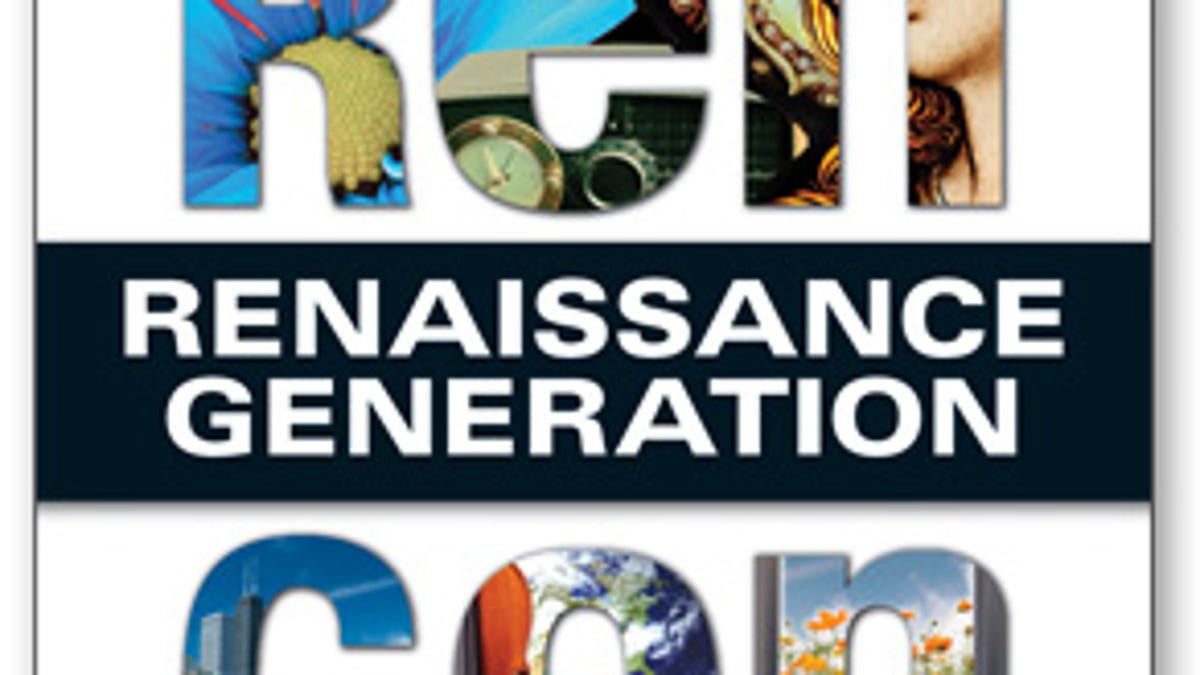RenGen: a generation of cultural consumers?
"RenGen," short for Renaissance Generation and the title of Patricia Martin's, well, trend-setting new book, falls under the latter. It is the latest in a long series of attempts to aggregate individuals into a cohesive stratum that is bigger than the sum
Isn't it interesting how trends are made? "One of the things I like about trends is that they seem so easy -- Blue is the color of 2008! GenY likes health food!" observes Stacey Gillar. Coupling the disparate ("Chic Trash"), pushing an already extreme concept to the extreme ("Radical Transparency"), or simply announcing the advent of something "new" ("Nouvelle Vague," "Nouveau Niche," etc.) are some of the flourishing categories. Or you simply repackage an old concept.
"RenGen," short for Renaissance Generation and the title of Patricia Martin's, well, trend-setting new book, falls under the latter. It is the latest in a long series of attempts to aggregate individuals into a cohesive stratum that is bigger than the sum of its members -- initially, based on socio-economic characteristics (Baby Boomer), and then increasingly also on attitudinal and behavioral traits (Generation X, Generation Y, Generation C).
The idea of the original historic renaissance, from which Martin derives her RenGen, has survived many trends. Reviving the philosophical impetus from ancient Greek philosophy, it believed that, per Wikipedia's definition, "it was possible to acquire a universal learning in order to develop one's potential, covering both the arts and the sciences." When someone is called a Renaissance Man today, it is meant that "he does not just have broad interests or a superficial knowledge of several fields, but better that his knowledge is rather profound, and often that he also has proficiency or accomplishments in (at least some of) these fields, and in some cases even at a level comparable to the proficiency or the accomplishments of an expert."
The RenGen, according to Martin's definition, is "a cultural movement created by the confluence of art, education, entertainment, and business." While the language is different, this still sounds strikingly similar to Da Vinci's generation. But wait, one thing is different with the new RenGen: "A powerful new player is at its center: the cultural consumer." Aha! That reminds one of Richard Florida's Creative Class or Tyler Brule's Monocle Magazine, both of which are built on the assumption that the human need for culture, defying all swan songs of cultural pessimism, ranks high in Maslow's pyramid, and that today's Renaissance Man is a multi-disciplinary multi-tasker who embraces several disciplines, ideas, and ideologies -- and can afford it. Confluence follows affluence. Culture, in a Renaissance kind of way, is the opposite of Stephen Colbert's "truthiness;" it is the insight that any possible human expression will find its form, and that the values of religion, technology, commerce, and politics can be moderated by a truth-seeking collective identity. Cultural consumerism, in contrast, means that any possible human expression can become a product, and that the values of religion, technology, commerce, and politics can be consumed by a fun-seeking collective identity. The renaissance was a movement of like-minded individuals with shared values; the RenGen is a cohort of consumers with an affinity for similar purchases.
The trick with books like "RenGen" is that they create a vessel for a desired collective identity rather than examining it. They do so by addressing the aspirational ego of the reader: Who doesn't want to be a Renaissance Man or Woman? You enjoy reading the book because it articulates an unarticulated desire and provides a convenient frame for the irreconcilable contradictions of modern life. On the surface, the charm of the homo universalis lies in its very universal character: You're not really good at anything? No problem, then be a cultural consumer, ahem, sorry, Renaissance Man. Or, if that doesn't work, just be a member of the RenGen!
